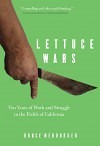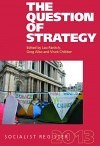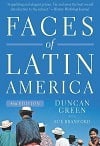Movements
David Bacon, Illegal People: How Globalization Creates Migration and Criminalizes Immigrants (Boston: Beacon Press, 2008), 261 pages, $25.95, hardcover.
In this compelling and useful book, David Bacon lays to rest the anti-immigration arguments of the xenophobes and racists who bombard us every day in the press, on television, and on radio talk shows with the vicious assertion that immigrants, mainly those from Latin America, are the cause of all our economic and social problems. | more…
Imagine. A liberation army that supports a generalized revolt of the peasantry reaches the gates of the capital, where the people, in their turn, rise up, drive the royal government from power and welcome as their liberator the Communist Party of Nepal-Maoist (CPN-M), whose effective revolutionary strategy needs no further demonstration. What is involved here is the most radical victorious revolutionary advance of our epoch, and, for this reason, the most promising. | more…
The first edition of Why Unions Matter was published in 1998. In it I argued that unions mattered because they were the one institution that had dramatically improved the lives of the majority of the people and had the potential to radically transform both the economic and political landscape, making both more democratic and egalitarian. I showed with clear and decisive data that union members enjoyed significant advantages over nonunion workers: higher wages, more and better benefits, better access to many kinds of leaves of absence, a democratic voice in their workplaces, and a better understanding of their political and legal rights. What is more, unions benefitted nonunion workers through their political agitations and through what is called the “spillover” effect—nonunion employers will treat their employees better if only to avoid unionization. | more…
The Importance of Internationalism and Civil Rights
During the Cold War, many of the people with a radical vision of the world were driven out of our labor movement. Today, as unions search for answers about how to begin growing again, and regain the power workers need to defend themselves, the question of social vision has become very important. What is our vision in labor? What are the issues that we confront today that form a more radical vision for our era. | more…

In 1971, Bruce Neuburger–young, out of work, and radicalized by the 60s counterculture in Berkeley–took a job as a farmworker on a whim. He could have hardly anticipated that he would spend the next decade laboring up and down the agricultural valleys of California, alongside the anonymous and largely immigrant workforce that feeds the nation. Part memoir, part informed commentary on farm labor, the U.S. labor movement, and the political economy of agriculture, Lettuce Wars is a lively account written from the perspective of the fields. | more…

Socialist Register 2013 seeks to explore and clarify strategy for the Left in the light of new challenges and new opportunities. Socialists today have to confront two realities: that they cannot avoid the question of reforms and a gradualist path out of capitalism, and that the organizational vehicles for socialism will most likely have to abide by different structures and principles than those that dominated left politics in the 20th century. Though solutions are not obvious, Socialist Register 2013 interrogates these dilemmas and critiques some unhelpful radical thinking that obstructs the reconsideration of socialist strategy for the 21st century. It asks, how have the occupations of public squares around the world changed the political scene? What are the most useful forms of political organization in the new conjuncture? Which features of past organizational models should be retained, and which discarded? | more…

Widely considered to be the best available introduction in English to the economies, politics, demography, social structures, environment and cultures of Latin America. This new edition is thoroughly updated and covers recent developments in Latin America such as the growing costs of export agriculture, the rise of Brazilian manufacturing, connections between the war on drugs and the war on terror, the social costs of neoliberalism, the Argentinian default, the search for new economic models in Venezuela and elsewhere, the decline in direct U.S. military intervention in the region, growing urbanization, urban poverty and casual employment, outmigration and the importance of family remittances from abroad, rampant environmental destruction, the struggles of indigenous movements, and more. | more…
“We are sinking in the Devil’s excrement,” wrote a close observer of Venezuela’s adventures in oil. Was Venezuela’s deep culture of corruption, crime, and clientalism imaginable in the absence of the oil rents which became the supreme object of desire? Was the truncation of industry and agriculture and the vast chasm between a privileged oligarchy and an impoverished mass inevitable-given the effects of oil wealth upon a poor, developing country? | more…
All social scholarship ultimately is about understanding the world to change it, even if the change we want is to preserve that which we most treasure in the status quo. This is especially and immediately true for political economy of media as a field of study, where research has a direct and important relationship with policies and structures that shape media and communication and influence the course of society. Because of this, too, the political economy of communication has had a direct relationship with policy makers and citizens outside the academy. The work, more than most other areas, cannot survive if it is “academic.” That is why the burgeoning media reform movement in the United States is so important for the field. This is a movement, astonishingly, based almost directly upon core political economic research | more…
Bill Livant was an independent Marxist intellectual whose main purpose was to provide theoretical tools to people engaged in revolutionary struggles. The Red Scare after the Second World War did not diminish the admiration he had felt for the Soviet Union during the war. The subsequent execution of Julius and Ethel Rosenberg was an ideological turning point for him. While working on his PhD in psychology at the University of Michigan, Bill stood out as a prominent radical. He was part of the Students for a Democratic Society movement that produced the Port Huron Statement | more…
Since ancient times, people have dreamed of a City of Youth, where the population never ages, and where any outsider who comes to live there will remain forever young. They probably did not have in mind, however, the “agelessness” of today’s Shenzhen, China. Lying just over the border from Hong Kong, this “instant city” has grown in just over twenty-five years from a small fishing village to a sprawling metropolitan region approaching ten million people. As the first Special Economic Zone in China, it was a model for the capitalistic “market reforms” and “opening to the world” initiated in the late 1970s by Deng Xiaoping. One of its most striking aspects is the low average age of its residents, which has hovered for years at around twenty-seven. This stands in ever sharper contrast to China as a whole, where the population is rapidly aging. | more…
Roxanne Dunbar-Ortiz, Blood on the Border: A Memoir of the Contra Years (Boston: South End Press, 2005), 304 pages, paperback, $18.00.
Few U.S. revolutionaries of her generation have “lived to tell the tale” like Roxanne Dunbar-Ortiz, to borrow the title of Gabriel García Márquez’s memoirs. Blood on the Border: A Memoir of the Contra Years is the last volume of a trilogy including Red Dirt: Growing up Okie (University of Oklahoma Press, 1992) and Outlaw Woman: A Memoir of the War Years (City Lights, 2001). Although influenced by oral traditions in his “native” Colombian Caribbean, García Márquez has little to say about his own political commitments, or Colombian politics more generally. In contrast, influenced by traditions of storytelling native to rural Oklahoma and Native American communities throughout the U.S. West, Dunbar-Ortiz’s latest memoir puts flesh on the bones of the slogan “the personal is political.” The phrase, she notes, was coined within the Student Non-Violent Coordinating Committee and carried into the women’s liberation and antiwar movements. | more…


